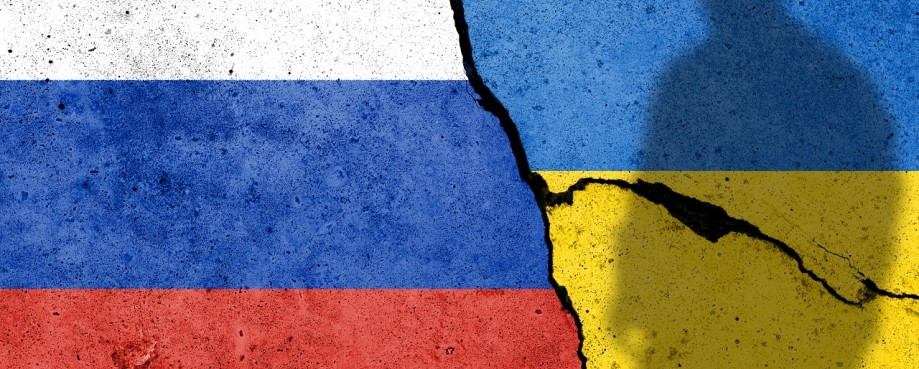
The tragedy unfolding in Ukraine and its bordering countries is unprecedented. Russia’s invasion of its sovereign neighbour has attracted universal condemnation, with the UN General Secretary Antonio Guterres, stating “Enough is enough, soldiers need to move back to their barracks, and leaders need to move to peace”.
The impact of this invasion on Ukraine is causing an unacceptable loss of life, destroying homes and infrastructure, and having a devastating impact on the Ukrainian economy. As of 3 March, UNHCR reported 1 million refugees have fled Ukraine in a week, joining over 850,000 people internally displaced before recent events even began. A figure that is growing by the day. As with any conflict, the innocent, most vulnerable and least able to help themselves will be the worst affected.
ETI calls on the international community to focus on ensuring a cessation to the conflict and withdrawal of Russia’s forces.
Workers & human rights
ETI’s approach to responsible business conduct in complex global supply chains is based on the UN Guiding Principles on Business and Human Rights (UNGPs), which state that business has a duty to respect human rights, a heightened role when the state’s duty to protect is affected and ‘where the human rights regime cannot be expected to function as intended.’
The war in Ukraine will have ramifications for global supply chains, with millions of workers in Ukraine experiencing total disruption to their daily lives. Many can no longer continue to work in peace and security, with business unable to operate, receive imports, or export finished items and secure payment for work done. Beyond its borders, the Ukrainian diaspora contributing to economies and business sectors across the world will no doubt be affected too. For many, this crisis will impact their work directly, or through their desire to return home and support their families and communities at this time.
While not parties to the conflict, responsible business employing those affected, with partners or business relationships in Ukraine and other affected countries, have a role to play. As indicated in the UNGPs, when the risk of gross human rights abuses is heightened by conflict, businesses operating in or conducting relationships in affected contexts should engage with impacted partners at the earliest possible stage. Working together with partners, businesses should help to identify, prevent, and mitigate any adverse human rights risks related to their activities and business relationships. The UNGPs also note that special attention should be paid to the risk of sexual and gender-based violence, which is especially prevalent in times of conflict.
While the wider situation remains dynamic and hard to predict, we would expect any responsible business operating in or sourcing from Ukraine to behave in line with the UNGPs. ETI expects company members to actively engage with supply chain partners in the country, and any other areas that may be affected. At the very least, responsible business should recognise that this is a traumatic time and will likely result in a halt to production and labour shortages, as communities are forced to migrate from the path of conflict. ETI members should take the most effective steps possible to ensure that suppliers are paid for work done, workers receive wages, no undue pressure is put upon suppliers and contracts are not unilaterally cancelled. Where unions are present, ETI members should use their influence to ensure that employers fully engage as early as possible.
Wider implications & sanctions
In the week since Russia invaded Ukraine much has already changed, and the wider political, economic, and social implications already being felt by millions are likely to evolve further. Widespread sanctions have been applied against Russia and to a lesser extent Belarus, which demand that any business working in or with suppliers (or partners) in these countries to consider their continued presence and activity as a matter of urgency. We have already seen some high-profile companies announce their disinvestment. However even in this case, it is crucial that adverse human rights impacts on workers are considered.
Recommendations
To what extent responsible business remains at all possible must be carefully considered. ETI recommends responsible businesses:
- Conduct enhanced human rights due diligence to assess the immediate adverse human rights impacts on workers and place their safety, welfare and needs at the heart of business decision making.
- Engage with workers affected in Ukraine; abroad; and in neighbouring countries, at the earliest stage possible, to accommodate their needs and be flexible at this unprecedented time.
- Ensure that where trade unions or worker representatives are present, employers actively engage with them and make joint decisions wherever possible.
- Engage with and show support to their suppliers in Ukraine and neighbouring countries, recognising the impacts this conflict will have on operations and workers and finding joint solutions to problems faced in the immediate, medium- and longer-term.
- Respect the requirements of the sanctions imposed and assess to what extent their activities sustain those supporting and or aligned with Putin, and his agenda.
- Take extra care to support equal access to employment for Ukrainian refugees once settled and put precautions in place to ensure fair pay and prevent risks of exploitation.
ETI will continue to engage with its member companies, trade unions and NGOs as this situation evolves and provide additional guidance as needed.
